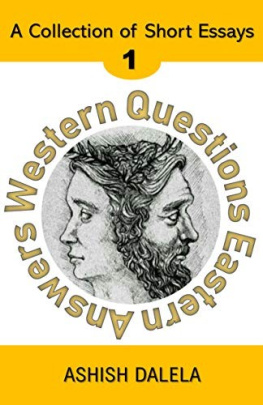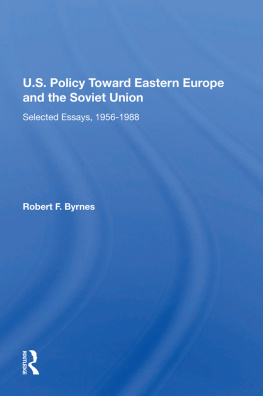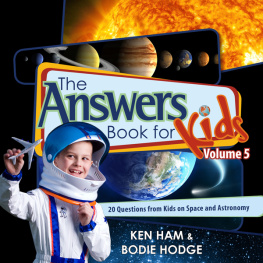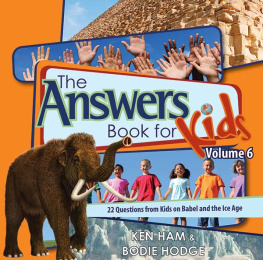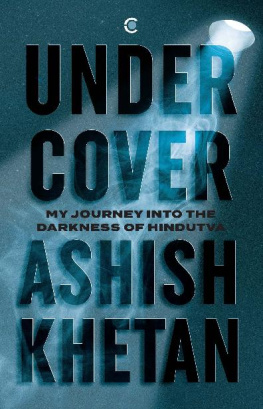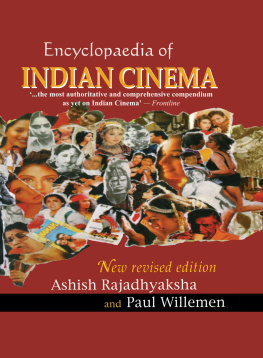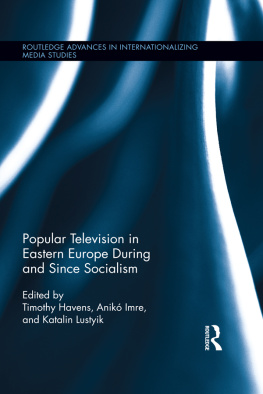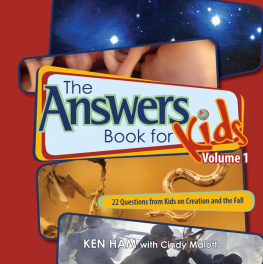Ashish Dalela - Western Questions Eastern Answers: A Collection of Short Essays - Volume 1
Here you can read online Ashish Dalela - Western Questions Eastern Answers: A Collection of Short Essays - Volume 1 full text of the book (entire story) in english for free. Download pdf and epub, get meaning, cover and reviews about this ebook. year: 2021, genre: Religion. Description of the work, (preface) as well as reviews are available. Best literature library LitArk.com created for fans of good reading and offers a wide selection of genres:
Romance novel
Science fiction
Adventure
Detective
Science
History
Home and family
Prose
Art
Politics
Computer
Non-fiction
Religion
Business
Children
Humor
Choose a favorite category and find really read worthwhile books. Enjoy immersion in the world of imagination, feel the emotions of the characters or learn something new for yourself, make an fascinating discovery.
- Book:Western Questions Eastern Answers: A Collection of Short Essays - Volume 1
- Author:
- Genre:
- Year:2021
- Rating:3 / 5
- Favourites:Add to favourites
- Your mark:
- 60
- 1
- 2
- 3
- 4
- 5
Western Questions Eastern Answers: A Collection of Short Essays - Volume 1: summary, description and annotation
We offer to read an annotation, description, summary or preface (depends on what the author of the book "Western Questions Eastern Answers: A Collection of Short Essays - Volume 1" wrote himself). If you haven't found the necessary information about the book — write in the comments, we will try to find it.
Ashish Dalela: author's other books
Who wrote Western Questions Eastern Answers: A Collection of Short Essays - Volume 1? Find out the surname, the name of the author of the book and a list of all author's works by series.
Western Questions Eastern Answers: A Collection of Short Essays - Volume 1 — read online for free the complete book (whole text) full work
Below is the text of the book, divided by pages. System saving the place of the last page read, allows you to conveniently read the book "Western Questions Eastern Answers: A Collection of Short Essays - Volume 1" online for free, without having to search again every time where you left off. Put a bookmark, and you can go to the page where you finished reading at any time.
Font size:
Interval:
Bookmark:
Other books by Ashish Dalela
The Yellow Pill
Cosmic Theogony
Emotion
Mystic Universe
Signs of Life
Moral Materialism
Uncommon Wisdom
Is the Apple Really Red?
Skhya and Science
Six Causes
Quantum Meaning
Gdels Mistake
Western Questions, Eastern Answers A Collection of Short Essays
Volume 1
Copyright 2018, 2019 Ashish Dalela
www.ashishdalela.com
All Rights Reserved. No part of this book may be reproduced in any form without the express permission of the author. This includes reprints, excerpts, photocopying, recording, or any future means of reproducing. If you would like to do any of the above, please seek permission first by contacting the author at adalela@shabdapress.net.
Published by Shabda Press
www.shabdapress.net
ISBN 978-93-85384-08-0
v1.2(12/2019)
The problems I write about have very broad ramifications. Im referring to the questions of meaning and morality, the issues of free will and determinism, the problems of indeterminism in science, the issue of semantics in computing and mathematics, and the question of the origin of life and the universe. Much of the appeal for such problems often fades in the modern rush of life, when people believe the questions are merely intellectual curiosities and that even if we were to find those answers nothing much would change in our day-to-day lives.
Whatever little interest remains for such topics today, the prospective reader list is further slimmed by the choice of the viewpoint from which I write about these issues. First, my perspective is drawn from the personalist school of Vedic philosophy, quite different from Advaita or impersonalism, with which most people are familiar. Second, most people are naturally turned off by reference to a religious philosophy. Third, by speaking of the problems that most academics are working on, outside mainstream academia, I rule out a large number of intellectuals who could have been potential readers. And yet, this is the viewpoint that I believe holds the greatest promise for answering the biggest outstanding problems. Having observed the utter failure of Advaita attempts to recast science in a new mold, as well as the materialist attempts to subsume new problems such as mind, meaning, and consciousness under the current physical worldview, I am convinced that a different view of nature is necessary, which is logical-empirical and yet not materialistic.
Over the years, I have written several books, the details of which you will find at the end of this work. To introduce these books, and as a result of the ensuing discussions with readers, I wrote several blog posts. This book collects these posts. Ideally, I should have inserted these discussions back into the books that originally led to these discussions. But given that revising a book is much harder, I have just collected the posts here.
The market for such topics is incredibly small today, constrained both by a lack of interest and by unfamiliarity with modern science. It includes those who have a good understanding of modern science and its problems, coupled with the awareness of the historical evolution of Western philosophy and the problems that caused that evolution, combined with an interest in understanding Vedic philosophy, and conjoined with the curiosity in the relevance of that philosophy to modern thinking. If any of the above prerequisites fails, the readership tends to reduce dramatically. Clearly, these books and posts are not therefore byproducts of economic considerations.
These books and posts were written for a very simple reason: I wanted to read such books and posts myself, but I could not find them anywhere. So, I studied, digested, and assimilated what I wanted to understand. Having reached a certain point, I also wanted to write it down, just because writing makes things clearer. Over time, however, I also thought that there might be some people interested in similar topicsknowing fully well that the likelihood of running into someone with that interest is almost next to zero. But, of course, the world is big! Next to zero chance multiplied by a very large number of people still produces a few interested souls. These are the readers who have constantly encouraged me through their appreciation, amazement, and kind words. That encouragement has kept me going on this journey.
Why did I choose to name this collection Western Questions, Eastern Answers? Philosophy and science in the West have largely been practiced with the aim to understand the present world. A number of theories have been propounded, none of which are free of problems. Philosophy and science in the East (specifically the Vedic tradition) has always been practiced with the aim to transcend the world. Vedic texts provide many theories, but always in answer to a transcendental question. On one hand, therefore, we have questions that havent found good answers. On the other, there are very good answers that havent been connected to the burning questions of mankind today.
Combining them makes a lot of sense from both sides, although I believe this type of approach to a synthesis of religion and science hasnt been attempted before. Clearly, to repeat the same answer but in response to a different question, and the answer to still make a lot of sense, we must understand not just the questions and answers, but also the other answers that were earlier given for the same question, and how the new answer is better. That is not just a demand on the author; it is an equally difficult demand on the reader as well. But thats the price to be paid if there is indeed a long history of incorrect answers which have to be rejected before a correct answer would be accepted. After all, we might still do the right thing, if only as the option of last resort.
My aim is to provide the answers that were previously given in response to radically different questions, but now in response to the questions that currently remain unanswered. Many people have tried to marry the intellectual and ideological views of East and West, sometimes with hilarious and disastrous results. This attempt is therefore not without considerable risks, although the effort is worth the trouble.
The books and posts are my personal journey into a subject that is very difficult, and rare by modern standards. I do hope to make it a tad bit simpler for others by showing the path that I have treaded. If you would like to discuss this further, do reach out to me through email or other ways available on my website. I wish you a fruitful journey.
Published Date: 2014-06-03
Science has, since its inception, suffered from the mind-body divide that Descartes created. The divide forced sciences to pursue an ideology of matter opposed to the existence of the mind, which makes an understanding of the mind impossible. Attempts in current science to explain sensations, mind and intelligence based on matter have failed. An alternative view of matter compatible with the existence of the mind is needed, to solve the myriad problems of their interaction.
Such an alternative ideology is found in Skhya philosophy, which constitutes the Vedic theory of matter. In Skhya, mind and matter are not two fundamentally different kinds of realities. They are rather the successive stages of development of meaning, that are abstract and contingent. The original primordial meaning is the most abstract reality. This reality expands into more contingent realities. The mind is one of the many levels of this expansion, as is the body. However, the bodily expansion follows the mental expansion, so, the mind is more fundamental than the body, although it is not the most fundamental.
Next pageFont size:
Interval:
Bookmark:
Similar books «Western Questions Eastern Answers: A Collection of Short Essays - Volume 1»
Look at similar books to Western Questions Eastern Answers: A Collection of Short Essays - Volume 1. We have selected literature similar in name and meaning in the hope of providing readers with more options to find new, interesting, not yet read works.
Discussion, reviews of the book Western Questions Eastern Answers: A Collection of Short Essays - Volume 1 and just readers' own opinions. Leave your comments, write what you think about the work, its meaning or the main characters. Specify what exactly you liked and what you didn't like, and why you think so.

